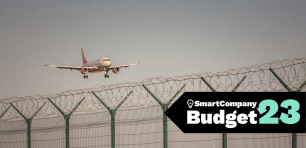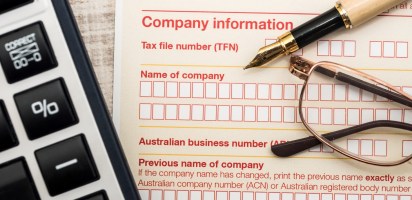
Source: Clem Onojeghuo/Unsplash.
The federal government has maintained its call for the national minimum wage to move in line with inflation, heralding the possibility of significant back-to-back increases flowing through to small business employers already facing a scheduled superannuation payment increase.
The Fair Work Commission is weeks away from handing down its minimum wage decision for the 2023-2024 financial year, outlining the baseline income of an estimated 2.7 million Australian workers covered by the minimum employment standards.
In its post-budget submission, the federal government on Friday said increases to the minimum wage, currently set at $21.38 an hour, should not fall behind the inflation rate.
Over the twelve months to the March quarter of 2023, the Cost Price Index, Australia’s ‘headline’ inflation rate, rose to 7% through increases to the cost of most goods and services.
Get daily business news.
The latest stories, funding information, and expert advice. Free to sign up.
If passed on in full, a 7% increase would lift the minimum hourly wage to $22.87, and raise weekly earnings by $56.46 from $812.60 to $869.06.
But instead of advocating for a 7% increase to the minumum wage, like the Australian Council of Trade Unions (ACTU) has done, the federal government has left the precise figure up to the Fair Work Commission.
“We recommend the Fair Work Commission ensures the real wages of Australia’s low-paid workers do not go backwards,” said the statement, signed by Treasurer Jim Chalmers, Minister for Employment and Workplace Relations Tony Burke, and Minister for Finance Katy Gallagher.
The recent budget’s assessment of inflation suggests inflation is due to moderate in the coming year “as global price shocks and supply constraints ease.”
“While still elevated, inflation is expected to fall to 3¼ percent in 2023–24 and return to the target band [2%-3%] in 2024–25,” it said.
Business representatives, unions still split on support
While the federal government and union movement advocate for a significant increase, small business representatives argue tight economic conditions will make it difficult to pass on another major minimum wage hike.
The Council of Small Business Associations of Australia is “more comfortable” with a 4% hike, according to chair and director Matthew Addison.
While the federal government has previously dismissed fears that higher minimum wage rates will contribute to a wage-price spiral and worsen inflation, Addison claimed it is still a live concern.
“We are concerned that small business individuals and mum and dads who own their own businesses are doing it tough and minimum wage increase to workers don’t easily get passed on to the owners themselves,” he added.
Ben Kearney, chief executive officer of the Australian Lotteries and Newsagents Association, said a 4% increase would help support newsagency workers, many of whom are classified under the General Retail Industry Award, without putting extra pressure on business owners.
“We’re very sympathetic that employees need to keep pace with growing living costs,” Kearney said.
“But at the same time, small business owners are often no different to those employees and they’ve got to be able to try and keep pace with it as well.”
“I think it’s important we just try and get that balancing act right,” he continued.
“Because small business is to some degree a victim of a lot of headwinds that are playing into the pricing of a lot of electricity, fuel, et cetera.”
In its May 2 submission, the Restaurants and Catering Association argued for the minumum wage to rise no more than 3%.
Imposing even greater penalty rates will push traders to the brink, it said.
“Small businesses that are unable to afford any excessive increases in the modern award wages rates and the subsequent application of weekend or public holiday penalty rates, will discourage trading and reduce the number of available shifts for employees, resulting in further underemployment and unemployment,” the submission read.
Even with inflation set to moderate, the industry association maintained current economic pressures are set to linger.
The separate 0.5% lifting of the superannuation guarantee rate to 11% on July 1 will make it even harder for traders, it said.
“An unsustainable wage increase will jeopardise the recovery and viability of small businesses, which are already feeling the pinch from rising operational costs and reduced consumer spending,” it said.
The latest proposal from the Australian Retailers Association calls on the FWC to lift the rate by 3.5%, a downward revision from the 3.8% uptick it proposed in March.
“This recommendation equates to a 4.0% increase in labour costs for employers, including the impact of the next increase in superannuation that will take effect at the same time as the next increase in the minimum wage,” it argued.
The National Retailers Association is seeking an uplift of no greater than 3.25%.
Conversely, the ACTU states 7% is appropriate, given the cost-of-living pressures facing those low-paid workers.
“Employee household living costs have grown more than for self funded retirees, pensioners or welfare recipients through the year, likely because of increased exposure to debt,” it said.
Small business conditions, while hardly rosy, will be broadly strengthened by measures contained in the new federal budget, the ACTU continued.
“The overall impression is one of generally reduced cost pressures to business, leaving sufficient room for business investment, incentive payments to workers, keeping prices high while consumers are happy to pay them and an unwillingness to be first movers in price reductions,” it said.
Handpicked for you

Small gains, big crackdowns: What the tax measures in the budget mean for small business




COMMENTS